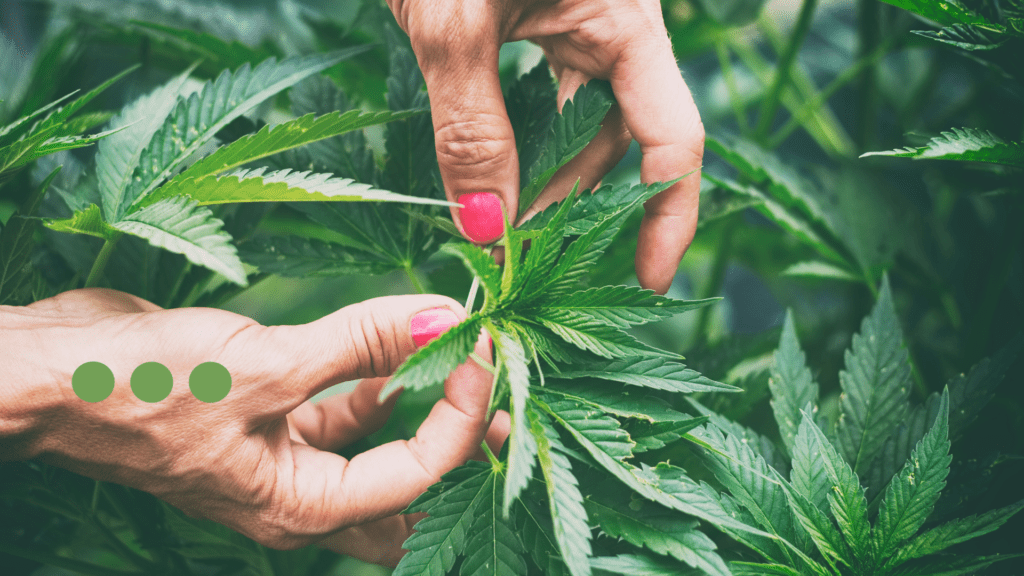
USA Mothers For and Against Weed: A Fifty-Year Revolution
It is interesting to see how a movement in the USA against marijuana, led primarily by concerned mothers almost half a century ago, has recently been turned on its head in a campaign by mothers in the USA who are advocating for the use of marijuana to improve parenting.
This revolution is neatly represented in books by two women, both in their mid-thirties at the time of publication, separated by nearly two generations in time, and with diametrically opposed opinions: Marsha Mannatt, who published Parents, Peers, and Pot in 1979, and Danielle Simone Brand, who published Weed Mom in 2020.
America Goes Towards Decriminalisation
In the early 1970s, a trend towards the decriminalisation of marijuana began in some states in the USA. Between 1973 and 1978, twelve states, a third of the country, decriminalised possession of marijuana. A survey conducted in 1978 revealed that 37.1% of students had smoked pot in the previous month; 9% were smoking it every day. Although marijuana was still illegal at a federal level, by 1976, cannabis paraphernalia vendors were earning more than $120 million a year through the sale of pipes, bongs and scales; the sale of rolling papers alone earned more than $50 million.
They also sold popular magazines, such as High Times, Stoned and Stone Age, which were enthusiastic about cannabis (Dufton 2021: 298–289).
Cannabis was not about to disappear from the American way of life.

The Campaign against Marijuana
In the mid-1970s in the USA, a movement initiated in Atlanta, Georgia, by concerned parents formed to campaign against the use of drugs—particularly marijuana—by young people. In the summer of 1976, Marsha “Keith” Manatt Suchard, a thirty-six-year-old mother of three, discovered that her thirteen-year-old daughter, Ashley, had been smoking pot with her friends in the Suchards’ back yard. She was horrified and contacted the parents of the other teenagers involved. They met and decided that they needed to oppose the idea that smoking weed is “cool”. They blamed marijuana for the negative attitudes that some of their children had towards them and others and for falling grades in school.
The parents pooled their resources, and together with Thomas “Buddy” Gleaton, an associate health professor at Georgia State University, formed the organisation PRIDE (Parents’ Resource Institute on Drug Education) in 1977 to tackle what they perceived as a problem. Gleaton had been an anti-drug activist for several years and had hosted a drug prevention conference every year since 1974.
The parents in PRIDE banned paraphernalia and magazines such as High Times from their homes and established a community-wide curfew for youngsters to prevent them from gathering at night to smoke pot in places such as the Suchards’ back yard. They tried to offer their children “alternatives” to pot-smoking, such as yoga, dance and art classes, camping, backpacking and canoeing expeditions, sewing and modelling courses, sports, volunteer work at hospitals and community centres, and responsible part-time jobs. PRIDE also distributed information about drug use. The movement immediately successfully engaged with parents who were similarly concerned (Dufton 2021:302).
Parents, Peers, and Pot
Suchard, who had a PhD in English Literature, was then put in touch with Robert DuPont, head of the National Institute of Drug Abuse (NIDA), who commissioned her to write a book, Parents, Peers and Pot, which was published in 1979. The book was primarily aimed at parents with children under the age of fifteen, and it explained how parents could form anti-drug groups.

The book was made available free of charge and soon became NIDA’s most popular publication, distributing over a million copies. Within a few years, thousands of similar anti-drug parent groups had formed in the USA. By 1980, parent activists had become powerful enough to create their own national umbrella organisation, the National Federation of Parents for Drug-Free Youth (NFP).
Ronald Regan was famous for his continued “war on drugs”. His wife, Nancy, was unpopular when she first occupied the White House, but she quickly allied herself with the anti-marijuana movement, led mainly by concerned mothers. Nancy Regan’s involvement with PRIDE significantly increased her popularity as an anti-drug warrior and a “champion of mothers” for a few years. Though in a counter-reaction, her hallmark slogan, “Just Say ‘No’”, was soon neatly inverted by Timothy Leary into “Just Say Know”.
PRIDE conferences attracted a global host of women activists, reaching a peak in the mid-1980s. Still, by the mid-1990s, when there were further moves in the USA towards decriminalisation, PRIDE had disappeared from both the national and international stage (Dufton 2021:302–316).
Mothers Using Cannabis
In 2020, forty-three years after the founding of PRIDE, the publication of Weed Mom by Danielle Simone Brand signaled a complete revolution in the attitudes of many mothers in America towards cannabis (see also the blog ‘Can Cannabis Make You a Better Parent’).
Brand is a journalist, yoga teacher and mother of two young children. After getting married young, while still at college, she later discovered that her husband was “addicted” to pot. Their marriage was in difficulty. Her husband went into rehab in California and recovered. Ironically, several years later, she discovered the wonders of cannabis herself. Since January 2018, it has been legal to buy recreational cannabis in California and ten other states in the USA. Even though she had tried cannabis unsuccessfully before, Brand’s first proper experience was when she was alone at home. She carefully inhaled, did yoga and had an amazing time getting deep into her practice. She began experimenting with cannabis through edibles, tinctures, smoking and vaping.

She quickly realised that smoking weed helped her enormously. It enabled her to temporarily turn down the volume of her usually busy mind and put time into playing and being with her children. It helped her sleep, allowed her to be more sensitive to her body and the natural environment, and improved her sex life tremendously. In the course of children’s parties and activities, Brand began meeting other “cannamoms”. She realised that many mothers were doing the same as her; they used cannabis for pain relief, sleep, and libido.
Brand thought that many could benefit from accurate information about using weed as a mother. Already, by 2018, there had been discussion groups running for several years about the topic on platforms such as Facebook (Stanforth 2021).
Brand’s book opens with an amusing “divorce” letter addressed to alcohol. The author no longer likes drinking booze and waking up hungover. She is unapologetically enthusiastic about cannabis and loves the wondrous plant. The book is informative and historically and scientifically accurate. It contains many stories and anecdotes about and by mothers who use cannabis. It also provides essential and valuable information about accurately using the required type, strength and dose of cannabis products for the required effects.
More is definitely not necessarily better; many cannabis mothers just microdose. Using too much cannabis can lead to mental and health issues in some people. Some people having adverse reactions to cannabis is also dealt with sensibly; it’s not suitable for everyone. But then, what is? It is not sensible to drive or perform a host of other complex activities if you are too high; nor is it wise to use cannabis with other drugs or any history of psychosis or mental illness in the user’s family.
Conclusion
Very few clinical studies have been done on cannabis and parenting. However, one study involving a group of thirty-two participants who used medical cannabis (Thurston et al. 2019) revealed that six of the eleven participants, who were parents, believed that marijuana helped them be calmer and more patient with their children. However, the paper’s authors conclude that more similar studies need to be conducted before any definite conclusions can be drawn.
Since Brand’s book in 2020, there have been quite a few articles in the British press about “cannabis mothers” (see, for example, Bett 2021; Cliff 2021; Staniforth 2021). Brand also has a website and newsletter (Weedmama.ca). Another website, Splimm.com, is devoted to cannabis and parenting. The cannabis mum’s movement now appears to be growing, some mothers maintaining that a joint is just their glass of wine but that smoking weed to unwind is much better for parenting than using alcohol.
The world had changed and is now a great deal better informed about cannabis than when the Reagans just said “No”.
References
Bett, John (2021). ‘Mum who smokes weed when the kids are asleep says it’s the same as drinking wine’. The Mirror, 4th October.
https://www.mirror.co.uk/news/weird-news/mum-who-smokes-weed-kids-25136075
Brand, Danielle Simone (2020). Weed Mon: The Canna-Curious Woman’s Guide to Healthier Relaxation, Happier Parenting and Chilling TF Out. Berkeley, CA: Ulysses Press.
Cliff, Martha (2021). ‘Splifting the Lid: Smoking cannabis makes me a better mum – I was never the most patient with my kids, now I am’. The Sun, 3rd March.
https://www.thesun.co.uk/fabulous/14220350/smoking-weed-makes-me-patient-mum/
Dufton, Emily (2021). ‘PRIDE International and Drug War Diplomacy: The Parent Movement’s Global Battle Against Marijuana in the United States, ca. 1970–1985’. In Lucas Richert and James H. Mills (eds.), Cannabis: Global Histories, pp. 297–319.
Manatt, Marsha (1979). Parents, Peers and Pot. Washington, DC: National Institute on Drug Abuse/US Department of Health and Human Services.
Splimm: Pot and Parenting (2021). https://splimm.com/
Staniforth, Jesse (2021). ‘The cannamoms parenting with cannabis’. BBC News, 18th November. https://www.bbc.com/worklife/article/20211116-the-cannamoms-parenting-with-cannabis
Taub, Ben (2021). ‘Can Cannabis Make You a Better Parent’. Seedsman.com, 9th February.
Thurstone, Christian, Ingrid A. Binswanger, Karen F. Corsi, Deborah J. Rinehart, and Robert E. Booth (2013). ‘Medical Marijuana Use and Parenting: A Qualitative Study’. Adolescent Psychiatry, vol. 3(2), pp. 190–194.
Weed Mama (2021). https://weedmama.ca/
Cultivation information, and media is given for those of our clients who live in countries where cannabis cultivation is decriminalised or legal, or to those that operate within a licensed model. We encourage all readers to be aware of their local laws and to ensure they do not break them.
Source link











